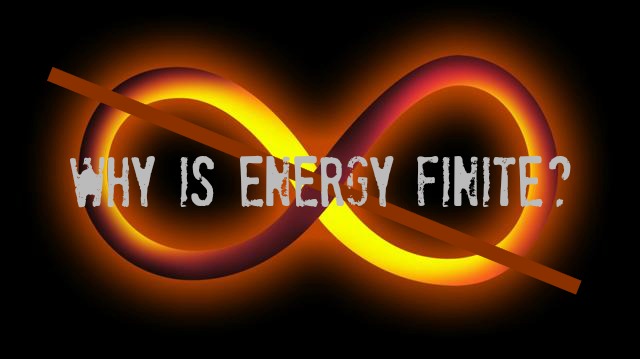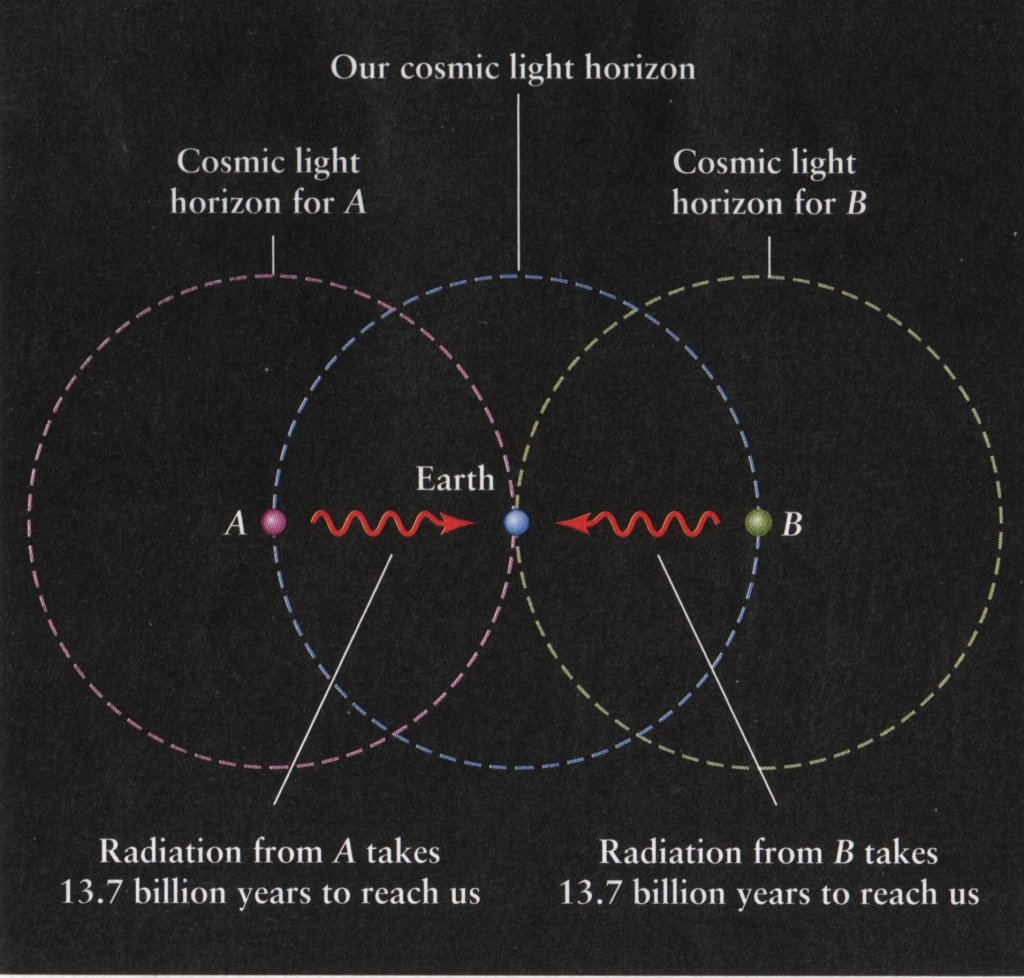

[su_heading size=”21″ align=”left” margin=”10″]Question: If the universe is infinite, why is there finite energy?[/su_heading]
First of all, we don’t know that the universe in infinite. Due to the finite speed of light, even if the universe is, indeed, infinite, we would have no way of knowing with certainty unless it’s also infinitely old (which, based on what we know about the universe, seems rather unlikely). One of the ways in which we determine the age of the universe is through something called the light horizon (or the ‘observable universe’).
Our Window:
To understand just what the light horizon is, let’s talk smaller numbers. Basically, if you were standing directly in the center of the universe when it was 5 minutes old, there would be a 5 light-minute sphere around you. Building upward from there, if the universe was 1 year old, our sphere would be a full light-year in size in each direction.
Currently, the radius of our sphere is 13.7 billion light-years across. However, with the principles we discussed above, we would be unable to see anything beyond our sphere (our sphere is also different than the sphere of, say, a galaxy in the Perseus cluster). Not incidentally, our radius coincides with the estimated age of the universe; 13.7 billion years old (the diameter is much larger than that, coming in at about 93 billion light-years across, about 13.7 billion light-years in each direction, but that has nothing to do with its age). Again, much more could lie beyond the light sphere, but we would be unable to see it nonetheless, which makes it difficult to gauge the true age and size of the universe.
Secondly, we don’t know that there is finite energy in the universe. Per the first law of thermodynamics, we know that the total energy of any system is static (it can’t lose/gain energy without interacting with another system), but that just means that the total amount of energy contained within the universe will never change. If the universe is infinite, we have no reason to suspect that there isn’t an infinite amount of energy.
Looking only at the number of possibilities, we have three options:
Infinite space—infinite energy
Infinite space—finite energy
Finite space —finite energy
As for which of those three options is correct, there is insufficient information. It is often said that space is infinite, but that isn’t always meant literally. If you where the size of a virus, the ocean would probably seem infinite from your perspective, though not technically true. And of course, we are many, many times smaller than the universe when we compare a virus to the ocean. Therefore a finite universe could be called “finite but arbitrarily large,” to put our own spin on it.

On Speculation:
Infinity is a troublesome quantity in mathematics. First of all, there are different kinds of infinity. When most people say “infinity,” they are referring to something called infinity null, because it is the lowest magnitude of infinity. Infinity null is the infinity of integers. An example infinity null is the infinity of whole numbers. Another example is the infinity of even numbers. Given a finite value, there will be about twice as many even numbers as there are whole numbers, but when talking about infinity, each is equally large. The infinity of prime numbers, whole numbers and even numbers are all equal in size, despite the fact that, in finite values, they all differ greatly in size.
Currently, there are three additional known types of infinity. That isn’t to say that there isn’t another one, it’s just that no human has ever been able to imagine another magnitude of infinity.
Finally, we’ve touched base on various things and hopefully demonstrated that things often change when comparing infinite and finite values. This (usually) makes it impossible to use orders of infinity with finite numbers in mathematics and still yield useful results. Because our current understanding of the universe implies that everything is connected — though the full extent of which hasn’t yet been defined — we often have to rethink how we go about something, if even one value in the universe was a magnitude of infinity. However, the easiest way to solve that problem is for every value to be some magnitude of infinity.
In conclusion, it is most likely that everything is infinite or everything is finite, however it is always possible that we will completely change our perception of the universe as we gain more knowledge, thus allowing other possibilities to come to the surface.